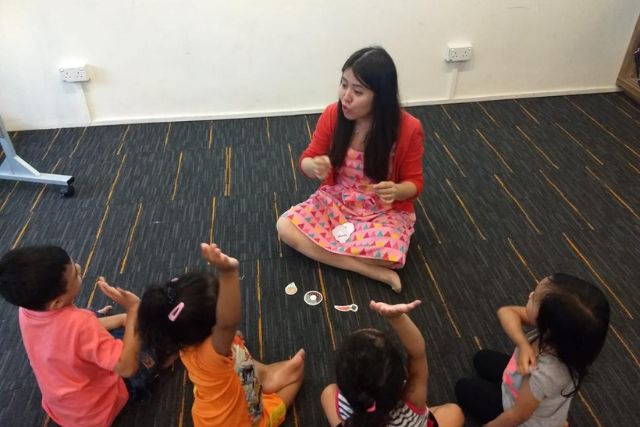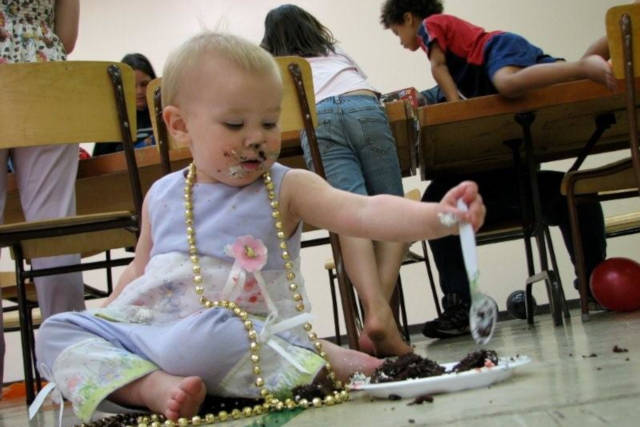Our kids can say the sweetest, funniest things ever, but they can also drive us up the wall with their smart aleck comments and retorts.
“Don’t talk back to me like that!” is a refrain that we heard a lot from our own parents when we were children, and now it’s our turn to be on the receiving end.
Dealing with a child who is a smooth talker or who always has to have the last word on any matter can be quite frustrating and draining. The good news is that little kids being cheeky can be quite cute, and even funny, at certain moments. But when it becomes a common occurrence, it loses its charm very quickly!
Here are a few tips for keeping calm and nipping this problem in the bud.

Find out why your child is talking back
Typically, your child may talkback for one of these reasons:
- He is trying to assert his will, which is contrary to your decision
- He is being playful and copying how he has observed adults banter, albeit with bad timing and judgment
- He wants your attention, even negative attention, and this is his way of getting it.
- He might have had a bad day in school, or a fight with a friend, or is just feeling a mix of intense emotions within him that he can’t express, so he’s releasing all that pent up emotion and energy this way.
Bottom line: There is always a good reason behind your child’s talking-back behavior. You need to find out what that is, so that you can better understand him and know how to help him cope.
Keep calm and don’t retaliate

Little children are always watching to see how you will react to them, and your knee-jerk response may unwittingly send a wrong message to your child. Ignoring your child’s talking back may tell him that such behavior is okay, or even that his views are just not important. Conversely, yelling at your daughter for talking back just builds up resentment and doesn’t provide for any long term change or character development to occur.
When you feel like you want to scream, do your best to hold your tongue and think before you speak. You can even ask your child for a moment to think before you speak – this helps them see what they’ve said does matter and has impact on you. Never let it escalate into a war of words, especially in a public setting. If necessary, just walk away, and address the situation later on when both of you are in a calmer mood. A gentle response almost always softens a child’s heart to receive your message better.
Explain what is acceptable behavior

We no longer live in a culture where children are told to be ‘seen and not heard’. Many of us value and want our children to express themselves. However, self-censorship is a learned behavior, and not something our kids can grasp overnight. And so, they are honest, brutally so, and have not yet learnt the art of considering differing perspectives. As a result, their words are harsh and may hurt or offend you and others.
Explain to your child that you value her thoughts and emotions, but that there is a better way to express it. Using bad language, name-calling or insulting and shouting at you is not okay. (For that matter, neither is it okay for her to shut you off and ignore you.)
Suggest some ways she can express her feelings in a polite way, such as “I’m so XXX (mad, disappointed, upset etc) now and I don’t want to talk about this anymore for now” or “I don’t agree with you. Can you guys please listen to what I think?”
If it’s just about getting attention, perhaps it’s time for a serious talk with your child to find out if he is feeling cared for or if he needs to spend more one-on-one time with you.
At the end of the day, let your child know that you are the parent, so you get to choose the outcome, but that this doesn’t discount what your child is thinking or feeling about the situation.
Set and meet our appropriate consequences
Once you have discussed with your child which behaviors and phrases are inappropriate, lay out the consequences of talking back unnecessarily, for example, the loss of certain privileges (like TV time), or having to perform chores (like tidying her room). In our humble opinion, a good spanking doesn’t help your child where talking back is concerned – it might mean she won’t talk back to you, but she may well be rude to other adults or peers in her life.
Children see, children do
You can talk to your child until the cows come home, but ultimately, you need to model the behavior you expect from him. Little ears are always listening, and little eyes are quick to see how you will respond. Watch yourself – how you relate to your spouse, to your friends, to your parents – and be mindful to be respectful, polite and gracious in all your interactions, as far as possible.
Encourage your child
We parents are quick to get upset when our children talk back, but often don’t notice when they are making a special effort to express themselves politely and graciously. Pay special attention to moments when your child responds positively to others, and let her know you noticed the good behavior in private later. A little bit of affirmation goes a long way!
By Dorothea Chow
* * * * *
Like what you see here? Get parenting tips and stories straight to your inbox! Join our mailing list here.
Want to be heard 👂 and seen 👀 by over 100,000 parents in Singapore? We can help! Leave your contact here and we’ll be in touch.























































